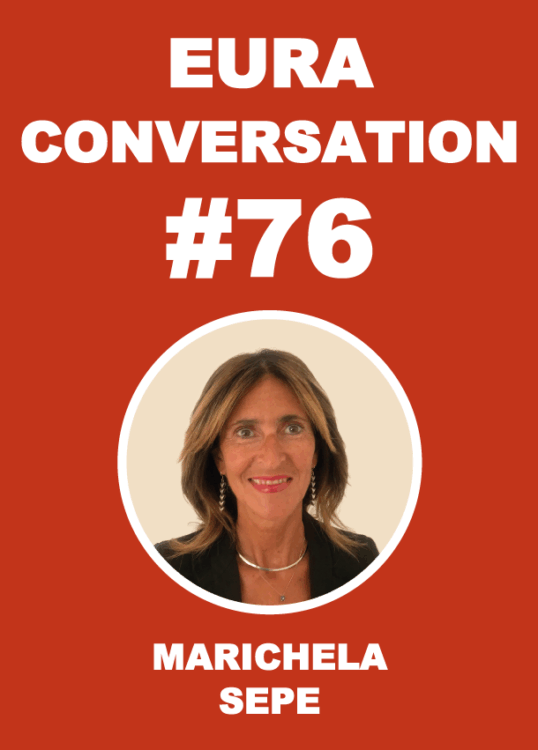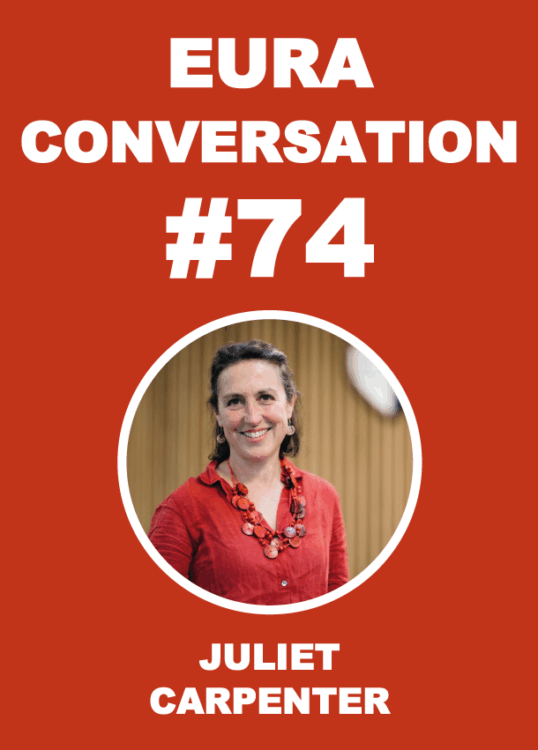
EURA has a new YouTube channel!
26/09/2021
#31 The impact of COVID-19 on Trinidad and Tobago
19/10/2021Beyond the post-Covid narrative: What’s next?
EURA Conversations Post #30 – 06 October 2021
by Ignazio Vinci, University of Palermo

In May 2020 we started EURA Conversations with the aim of stimulating a critical debate on the future of cities during one of the hardest challenges experienced by urban communities for decades: the lockdown due to the COVID-19 pandemic. Since then, 26 scholars from across the globe have contributed a wide range of personal views on how cities were experiencing these traumatic events, how people’s everyday life and needs were changing under these unexpected circumstances, and the directions undertaken by local governments to reimagine both the social and material structure of cities.
Sixteen months later the pandemic is still very much a part of our lives, but we certainly now look at urban life with different eyes. On the one hand, a vaccine now does exist, and the powerful efforts made to roll the vaccination out (in Europe at least) has enabled many city functions to get back to normality. On the other, the ‘end-of-cities’ narrative has lost momentum in the public debate. New solutions to make social interactions safer have emerged and the core values that cities stand for – bringing people together to exchange values and ideas – have reasserted themselves (see on this point conversation #2 ).
Now, perhaps, it is time to reconsider urban issues not just through the lens of the widespread changes determined by the pandemic, but also to reflect upon cities’ evolution going beyond a pure post COVID-19 perspective. In other words, we need to scrutinize the legacy of the powerful exercise of imagination made by so many different actors during the pandemic and to understand which ideas have the potential to shape ways of living and governing cities in the near future.
These questions include how digital technologies – so effective in containing social interactions and the virus – will help the progress of cities without becoming an instrument of control; in which directions local government will change under the endless redefinition of the boundaries between the public and private domains; how the social and territorial divides exacerbated by the pandemic will be bridged without lacerating conflicts; will the growing concern for the environment lead to the emergence of new forms of citizenship. And many others…
Over the last year, hundreds of people have approached EURA through our website and Facebook page, intrigued by the mission and activity of our community, which is basically to provide a better understanding of cities and urban policy through international exchange and dialogue. These include individuals with different cultural backgrounds – for example, political and social scientists, geographers and planners, anthropologists and architects – which can constitute a valuable source of inspiration and fresh ideas to expand our knowledge of cities and societal challenge.
We encourage this wider community of scholars and policy makers to contribute to the EURA Conversations series, an open space that was designed from the very beginning to reflect a diversity of views and skills. American sociologist Robert Park wrote one century ago that cities are ‘man’s most successful attempt to remake the world he lives’ and ‘in remaking the city man has remade himself’ (On Social Control and Collective Behavior: Selected Papers, Chicago, 1967). If this assumption is true, we believe it is worth it.
In the next contribution to EURA Conversations Gabrielle Thongs discusses the impact of the pandemic on Trinidad and Tobago.






